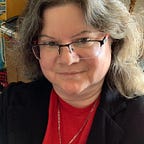Losstending
During March and April of 2021, I took part in “Soloss,” a community care network developed through a partnership between REACH Edmonton, InWithForward (a Vancouver social design agency), and the City of Edmonton’s RECOVER Wellbeing initiative. The team was prototyping the “Losstender” position in Edmonton, based on ethnographic and other research by all of the partners over the previous three years with street-involved Edmontonians.
“Losstenders” are a constellation of folks who open up spaces for moments of grief to also be moments for connection. Basically, we are artists who sat with and spoke to “Sharers” who told us their stories of life and loss. Thought of another way, a “Losstender” is kind of like the friendly bartender to whom people bare their souls. Three unique people chose to share their stories with me, but I was there to do more than sit and listen. I created a song for each of them as a lasting artifact of our encounters and to help them on their healing journeys, through feeling heard and helping to address unmet needs through song.
The end result is the three-song EP Losstending that I released in early May. You can listen to the album at my Bandcamp, as well as purchase a download. Let me tell you about the three songs. First of all, all of the people who shared with me were Indigenous and survivors of the colonialism and genocidal practices of Canada. During the month of July, I will donate the net proceeds from sales of the Losstending EP to the Indian Residential School Survivors Society. I discussed this idea with an Elder who suggested this organization.
You can click on a song title to be taken to Bandcamp to hear the song and see the lyrics.
I met a woman who shared her experiences being part of the 60s scoop, adopted by a white, religious Christian family. She was very specific about what she wanted her song to capture about her, almost like an anthem for her now being able to live authentically as a transgender woman. What struck me the most about her, was her positive energy despite having a very hard life. She radiated confidence and pride.
This is a story about a young boy who would sing his grandmother to sleep every night in Cree, until his language was taken from him at residential school. We also did some jamming. Soloss was able to get a guitar for him, and he played for the first time in 30 years. I would always wear my Johnny Cash shirt when we met, because he’s a big fan. I wrote him a song with simple enough chords that he could be able to play. When I presented the song to him, he nodded and said, “Yup — that’s my story.”
The sharer of this story reminisced about the traditional life that he lost after being dragged away to residential school. He’s a man of few words, but of strong faith. We would pray together, in English and in Cree. When I presented this song to him, he said he was deeply moved.
For more information about Soloss: soloss.ca
